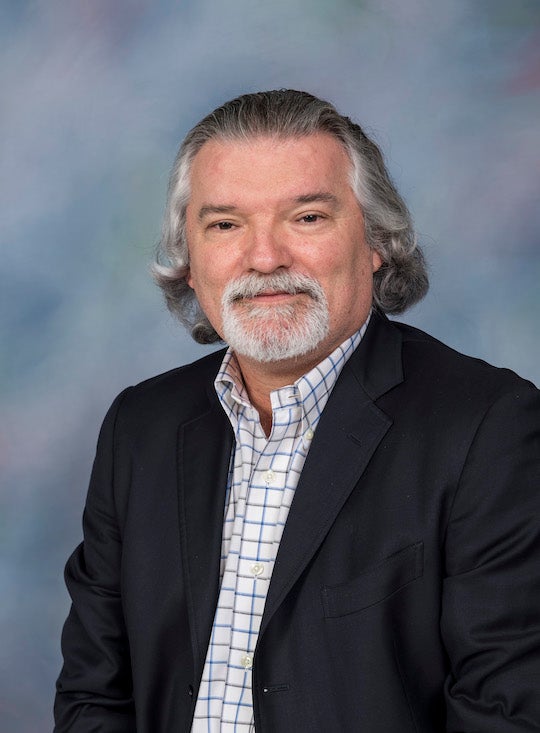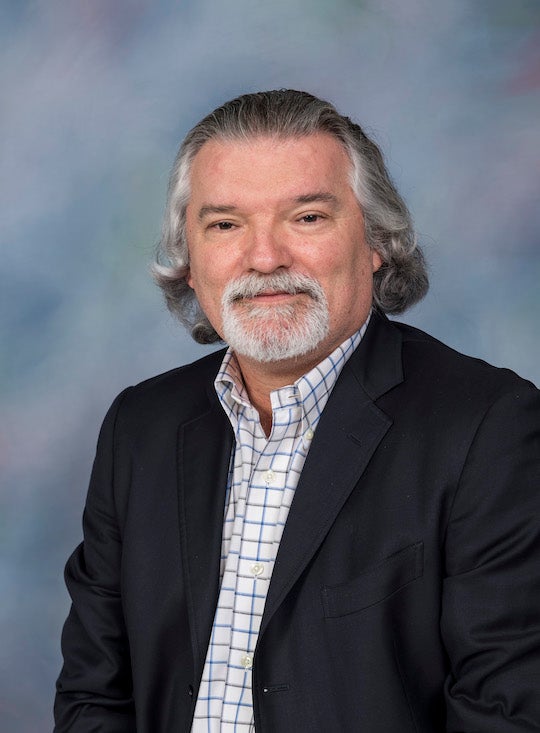Eduardo Salas , department chair and a professor of psychological sciences at Rice University, has received the coveted James McKeen Cattell Fellow Award from the Association for Psychological Science in recognition of his outstanding career achievements.

The award recognizes APS members for a lifetime of contributions to applied psychological research — that is, translating knowledge into practice to address critical societal issues — which is a core value of Rice’s School of Social Sciences, Dean Rachel Kimbro said.
“Eduardo has led the way in shaping how scientists think about teams, in particular team training and teamwork, and applying it to various disciplines,” she said.
Recipients must be APS members whose research addresses a critical problem in society at large. Salas, whose research has tackled team issues in multiple industries, from aerospace to health care, said he is “very humbled” by the recognition.
“I have learned over the past 38 years that there is nothing more rewarding than conducting applied research,” Salas said. “Using our organizational science to make a difference in people’s lives — making an impact — is and has been my passion,” he said.
Throughout Salas’ nearly 40-year career, his research has resulted in significant changes and beneficial impacts across various industries.
As a subject matter expert and principal scientific adviser, he provided theoretical models and evidence-based research findings that served as the framework for TeamSTEPPS, a teamwork system that is part of the Department of Health and Human Services’ Agency for Healthcare Research and Quality, the lead federal agency charged with improving the safety and quality of health care for all Americans. TeamSTEPPS, which is designed for health care professionals to improve safety within organizations, was started in response to the Institute of Medicine’s 2000 call to action on medical errors. The program has become highly successful, used by 70% of U.S. health care systems and adopted internationally.
“Through this program, Eduardo’s work has reduced medical errors and saved lives,” said Salas’ colleague, Pat DeLucia, associate dean of research for the School of Social Sciences and a professor of psychological sciences.
Salas is also one of the most highly cited scholars in the world, according to rankings from Research.com . His work is referenced in many disciplines including management, anesthesiology, communication, education, human resources, leadership, medicine, marketing, human-computer interaction and manufacturing. Salas has more than 120,000 citations — with 24 publications cited more than 1,000 times — and has received more than 80 grants totaling more than $61 million.
He has received the American Psychological Association’s Award for Outstanding Lifetime Contributions to Psychology (2016), the Society for Industrial and Organizational Psychology's Distinguished Scientific Contributions Award (2016) and the Society for Human Resource Management’s Michael R. Losey Excellence in Human Resource Research Award (2012), among his numerous honors
“My colleagues in my department, my current and former students, and collaborators across campus, in Houston and beyond made this possible,” Salas said. “It’s a very enriching feeling to know you’re helping and solving organizational and human performance challenges. And there’s nothing like being at Rice University for this journey as it is, indeed, an enabler for creating impact.”
APS is the scientific home of thousands of leading psychological science researchers, practitioners, teachers and students from around the world. The organization is dedicated to advancing scientific psychology and committed to disseminating psychological science to the general public, promoting the integration of scientific perspectives across the field and with other scientific disciplines, incentivizing global collaboration among researchers, promoting further development of psychological science and promoting the application of psychological science to public policy. More information is available online at https://www.psychologicalscience.org .

